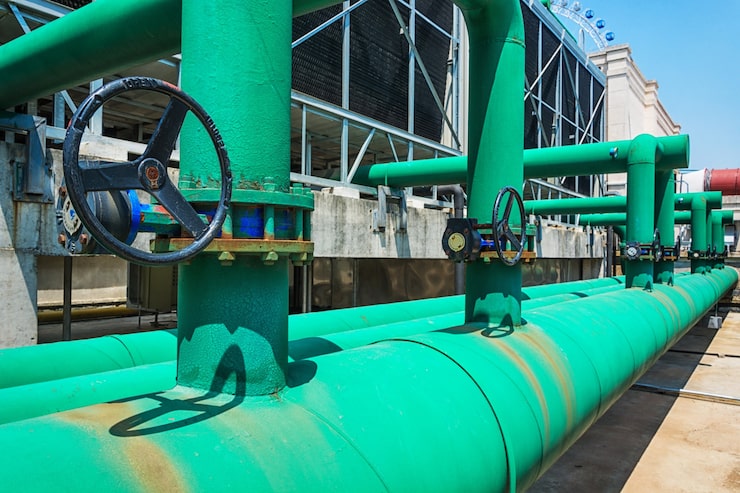An industrial pipe is a fundamental component in many manufacturing, processing, and infrastructure systems designed to transport fluids, gases, slurries, or even solids within industrial facilities. These pipes serve as the arteries of various industries such as oil and gas, chemical production, power generation, water treatment, food and beverage manufacturing, and many others. Understanding what is an industrial pipe involves exploring its characteristics, materials, functions, and importance in industrial operations.

At its core, an industrial pipe is a tubular conduit engineered to carry substances safely and efficiently from one point to another. Unlike ordinary residential plumbing pipes, industrial pipes must withstand demanding conditions including high pressures, extreme temperatures, corrosive chemicals, abrasive materials, and physical stresses. They are typically designed and manufactured to meet strict industry standards and codes that ensure safety, durability, and compatibility with specific industrial applications.
Industrial pipes vary widely in size, material composition, wall thickness, and construction method. The selection of an appropriate pipe depends on the nature of the medium being transported, the operational environment, and regulatory requirements. For instance, pipes used to transport steam at high temperatures will differ significantly from those used to carry potable water or hazardous chemicals.
The materials used in industrial pipes can range from metals like carbon steel, stainless steel, and alloys to non-metallic substances such as plastics, fiberglass, and composite materials. Each material offers distinct advantages and limitations. Metal pipes generally provide high strength and resistance to pressure and temperature but may require protective coatings against corrosion. Plastic pipes like PVC and HDPE offer corrosion resistance and lightweight handling but may have lower temperature or pressure ratings.
Industrial pipes are classified based on their manufacturing process into seamless and welded pipes. Seamless pipes are formed without any joints, providing superior strength and leak resistance, making them ideal for high-pressure systems. Welded pipes are fabricated by rolling and welding steel plates or strips, offering cost-effectiveness and availability in larger diameters.
A key aspect that defines industrial pipes is the adherence to rigorous standards and certifications such as those from the American Society for Testing and Materials (ASTM), the American Petroleum Institute (API), and the International Organization for Standardization (ISO). Compliance ensures that pipes meet specific mechanical, chemical, and dimensional criteria essential for safe operation.
Industrial pipes fulfill a variety of critical roles in the infrastructure of industries. They transport raw materials, intermediate products, and finished goods. For example, in the oil and gas sector, pipes carry crude oil, natural gas, and refined products across vast distances. In chemical plants, they transfer corrosive and reactive substances under controlled conditions. Power plants rely on piping systems to circulate steam and cooling water essential for electricity generation.
The design and installation of industrial piping systems involve precise engineering calculations to ensure the pipes can handle anticipated pressures, flow rates, and thermal expansion. Engineers must also consider factors such as vibration, potential chemical reactions, ease of maintenance, and integration with valves, pumps, and instrumentation.
Maintenance and inspection of industrial pipes are crucial to prevent leaks, ruptures, and contamination, which can lead to safety hazards, environmental damage, and costly downtime. Techniques like ultrasonic testing, radiographic inspection, and corrosion monitoring are commonly used to assess the condition of pipes and predict their remaining service life.
In addition to functional importance, industrial pipes contribute to operational efficiency. Properly selected and installed piping minimizes frictional losses, reduces energy consumption for pumping, and ensures consistent delivery of fluids. The reliability of piping systems directly impacts production continuity and quality.
In recent years, technological advancements have influenced industrial pipe manufacturing and materials. Innovations such as corrosion-resistant alloys, composite materials combining fibers with resins, and improved fabrication techniques have expanded the capabilities and lifespan of piping systems. These advancements allow industries to operate safely in more challenging environments while reducing maintenance costs.
Sustainability is becoming an increasingly important consideration. Selecting materials with recyclability, resistance to degradation, and lower environmental impact during production aligns with global efforts toward greener industrial processes. Additionally, efficient piping systems help reduce water and energy waste.
To summarize, what is an industrial pipe encompasses more than just a physical tube. It represents a complex engineering solution tailored to meet the demanding requirements of industrial operations. Industrial pipes are engineered to transport various substances safely under diverse conditions while complying with strict standards. They are constructed from materials selected for strength, durability, and compatibility with the transported medium. Their design and maintenance are vital to ensuring operational safety, efficiency, and environmental protection.
Understanding the types, materials, and uses of industrial pipes empowers industry professionals to make informed decisions that optimize performance and longevity. Whether in petrochemical refineries, power plants, food processing facilities, or municipal water systems, industrial pipes form the backbone of infrastructure that supports modern life and commerce.



